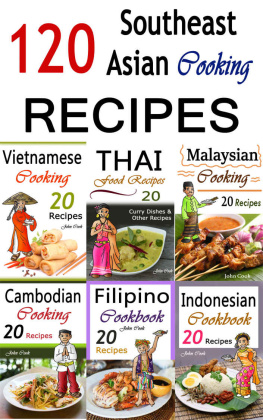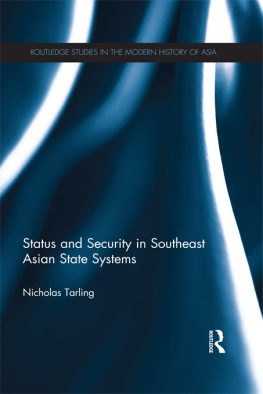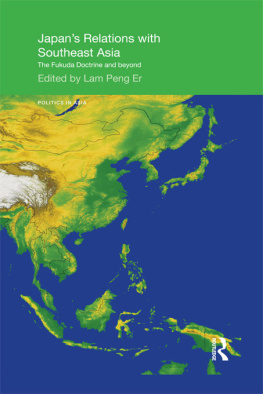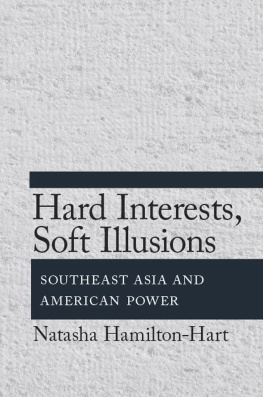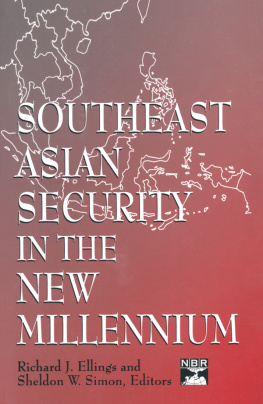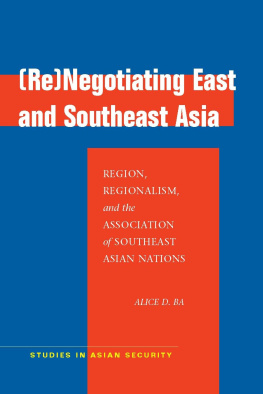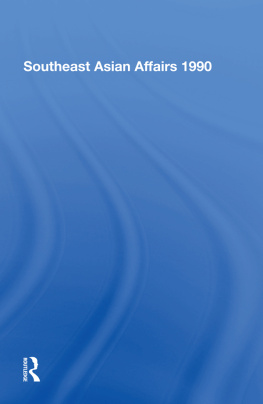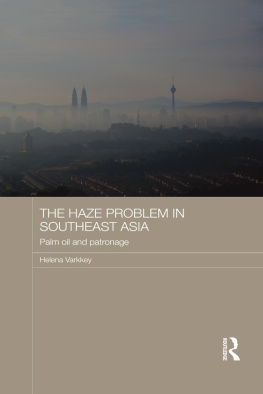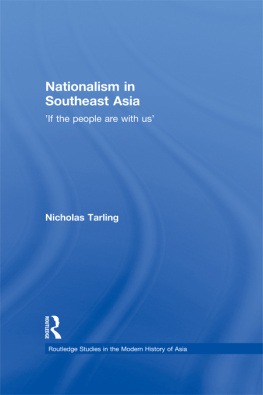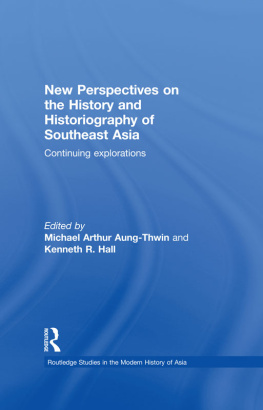Asian Godfathers
Also by Joe Studwell
The China Dream
Asian Godfathers
Money and Power in Hong Kong and South East Asia
Joe Studwell

Copyright 2007 by Joe Studwell
All rights reserved. No part of this book may be reproduced in any form or by any electronic or mechanical means, or the facilitation thereof, including information storage and retrieval systems, without permission in writing from the publisher, except by a reviewer, who may quote brief passages in a review. Any members of educational institutions wishing to photocopy part or all of the work for classroom use, or publishers who would like to obtain permission to include the work in an anthology, should send their inquiries to Grove/Atlantic, Inc., 841 Broadway, New York, NY 10003.
First published in Great Britain in 2007 by
Profile Books, Ltd., London, England
Printed in the United States of America
FIRST AMERICAN EDITION
eBook ISBN-13: 978-1-5558-4892-7
Atlantic Monthly Press
an imprint of Grove/Atlantic, Inc.
841 Broadway
New York, NY 10003
Distributed by Publishers Group West
www.groveatlantic.com
For my father, Eric, who died unexpectedly while this book
was being finished. We miss him.
Contents
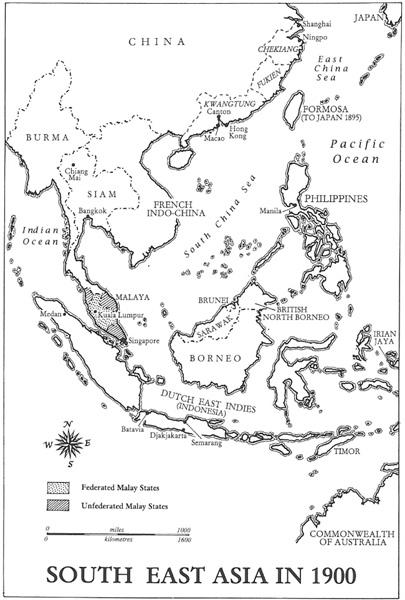
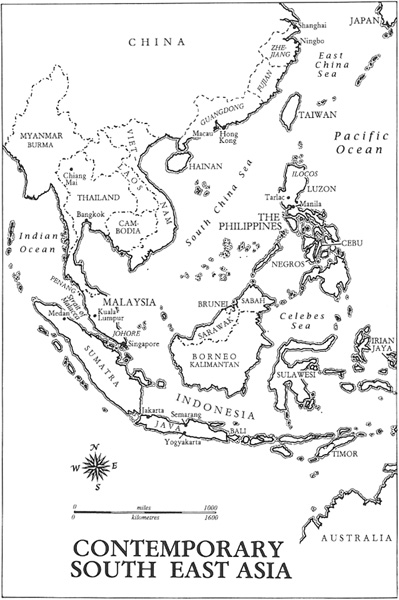
Introduction
Fitzgerald: You know, the rich are different than you and me.
Hemingway: Yes, they have more money.
An exchange Ernest Hemingway claimed to have had with F. Scott Fitzgerald
This is a book about a small group of very rich men the south-east Asian billionaires who, in the post-Second World War era, came to dominate the domestic economies of their region. For the purposes of what follows, south-east Asia is defined as the five original members of the Association of South-east Asian Nations (ASEAN) Singapore, Malaysia, Thailand, Indonesia and the Philippines plus Hong Kong, a place that traditionally swivels on an axis that allows it to be part of greater China and south-east Asia as self-interest dictates. These six entities are the economic story of their region, the south-eastern contributors to what the World Bank dubbed in 1993 the East Asian miracle.
It is very unusual for a book about the south-east Asian region to attempt a thematic appraisal of half a dozen territories. Most academic scholars have limited themselves to one or two countries. A handful of generalist works have tended to feature different chapters on separate states. These self-determined limitations are not without merit in what is an extremely diverse region. Nevertheless, this book undertakes a broad sweep, because it aims to highlight the fact that the six territories discussed are linked by powerful, unifying themes most importantly, similar historical legacies and a very particular relationship between political and economic power. These historical and structural similarities, and their significance, have been underestimated and under-reported by academic and journalistic commentators who have focused on individual countries. The states tycoon businessmen demand attention because they are a common symptom of a common set of circumstances.
In 1996, the year before the start of the Asian financial crisis that turned A small region that, concurrently, could not boast a single non-state corporation among the global top 500 none the less accounted for a third of the wealthiest two dozen people on the planet. These were the vanguard of the Asian godfathers, each with more than four billion American dollars to his name the likes of Li Ka-shing, Robert Kuok, Dhanin Chearavanont, Liem Sioe Liong, Tan Yu and Kwek Leng Beng; behind them came a phalanx of lesser tycoons, with one, two and three billion dollars of net worth.
In a region where US$500 a month is a very good wage, this embarrassment of riches of the few provides a remarkable contrast. So why have secretive tycoons come to rule the economies of south-east Asia? What have they contributed to the regions overall economic development? And, perhaps most important, why are they still so powerful, when the depth and potency of the Asian financial crisis an event to whose origins they were central appeared, to many observers, to be likely to emasculate them? It did not. As we shall see, the tycoons today are as entrenched as ever, with only a small minority of the weakest members of their class having succumbed to the corporate debt load that was brought into focus by the crisis. The quest for answers to the above three questions is the central task of this book.
In the search for answers, what follows uses the tycoons as a convenient vehicle for examining broader economic and political issues. This is a structural sleight for which no apology is offered: a straight historical narrative covering two entrept city states (as Hong Kong and Singapore are most usefully, if not politically correctly, considered) and four proper countries Malaysia, Thailand, Indonesia and the Philippines would be unduly segmented and draining. A circuitous but more reader-friendly approach is preferred. In this respect, Lytton Stracheys celebrated tome Eminent Victorians, published in 1918, is something of an inspiration. When Strachey wanted to capture the cant and hypocrisy of Victorian England, he refused what he called the direct method of a scrupulous narration and focused instead on the lives of a few eminent people. It is hoped the tales of Asian tycoons might be half as illuminating. It is also hoped that an analysis of south-east Asia once fingered for developed region status but more recently overtaken as the darling of international punditry by China and India will provide useful input to the imperfect science that is developmental economics.
The Plot
There is a danger with a bottom-up (if this term can be used in reference to a few eminent people) approach to south-east Asias recent history. It is that the reader may be drawn too deeply into the anecdotal detail of tycoons sometimes bizarre and extraordinary lives, and lose track of the bigger economic and political picture. In order to minimise this risk, it is helpful to prcis the books main themes upfront.
These are, first and foremost, that the south-east Asian economy is the product of a relationship between political and economic power that developed in the colonial era and was sustained, with a different cast of characters, in the post-colonial era. In this relationship, a political lite grants to members of an economic lite monopoly concessions, normally in domestic service industries, that enable the latter to extract enormous amounts of wealth, without a requirement to generate the technological capabilities, branded corporations and productivity gains that drive sustainable economic development. During the colonial era, these arrangements were confined mostly to members of the colonial lite, and to a lesser extent to other outsider groups. In the post-colonial era it was expedient for new indigenous political leaderships to nurture their own dependent class of, typically, non-indigenous tycoons who could siphon off economic rents, give a share to their political masters, and not pose a threat to political power. The tycoon class served its political purpose, and generated enormous personal wealth, but did little to promote overall economic growth. Instead, growth came from a combination of small-scale entrepreneurs, many concentrated in and around manufacturing, and a policy of renting out the local labour force to efficient multinational exporters. The city states of Hong Kong and Singapore prospered as ports, financial processors and offshore centres in which to stash capital generated in the rest of the region. All these economic arrangements appeared to work acceptably well until the July 1997 onset of the financial crisis. At that point it became clear that south-east Asia had major failings of political and institutional development, which set the region up for an almighty crash. Most of those problems have not been tackled in the decade since the crisis broke and it remains unclear whether they will be. The political and economic lites continue to live high on the hog and believe in their right to rule and there is no way to predict whether they will undergo some kind of moral epiphany.
Next page

